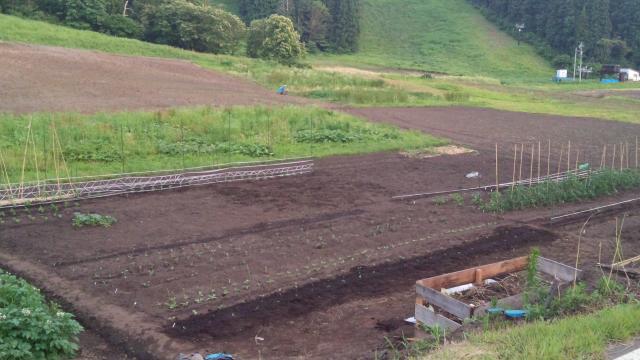- Thread starter
- #11
John_henry
Power Conserver
Thanks for your thoughts Joel. We actually chose not to rotovate in the end. We have hand weeded the plot thoroughly, from experience nothing else gets rid of the weeds quite like it, and decided to dig over the ground before planting, also incorporating manure, should we need to. We are keeping on top of the weeds by hoeing and various mulches such as dead leaf matter, compost, rice hulls etc, depending on the suitability. We will also incorporate green mulch/manure where possible, mainly white clover, and possibly buck wheat among others.Joel_BC said:A few opinions, based on more than 25 years' experience with organic gardening (IOW, since I was a kid). If you use organic methods year after year, the biology of your soil will improve. And that's what brings the soil "back to being organic". The methods include mulching, spreading compost and manure, planting green-manure crops, adding rock-powder soil amandments, and so on.John_henry said:A few burning things on our mind are: how to bring the soil back to being organic, how if possible to protect/get rid of any cross contamination from local chemical use, any organic weeding tips, and how to compost a huge heap of weeds.
Weed control: With organic soil cultivation, you cannot get away from hand weeding, hoeing, etc. You mention having had the 4000 sq ft plot "rotovated" to prepare the soil. When I hear that term (rotovator), I think of a tractor-drawn mechanical implement. I use a rototiller - a smaller machine with its own single-cylinder motor. I rototill the aisles between my planted beds or rows, as a part of our weed control. This reduces the amount of hoeing we'd do here. I do amend the soil in the aisles, just as I amend the planted rows (though I may put extra amendment into the planted rows). Then, in certain aisles, we use a straw mulch, which eventually rots-in and provides humus and feeds earthworms.
What our practices mean, over the years, is that - because the beds or rows can change position a little or a lot from one year to the next - the whole vegetable/berry garden area does get enriched. We're cultivating about 5000 sq ft of food-growing garden area, and we're on hands and knees (or hoe-in-hand) a lot. But were it not for the rototiller as a weeding method, there would be little time for money earning, building and equipment maintenance, study, hobbies, and visiting with neighbors.
Can you borrow the use of a rototiller now and then?
Other people doing organic cultivation have other habits and practices, so it's worth gathering many opinions.
We're going to plant lots of cover crops to help build up the soil and help bring it back to being organic. We'll be planting Sunflowers which I believe are good at pulling out toxins and debating with comfrey. The only problem with this is that to get rid of any toxins we obviously cant put them on the compost.
We're also using Bokashi composting and will use home made effective microorganisms (in moderation) which will also hopefully aid in creating good organic soil and allowing a varied eco system to flourish. This should also indirectly get rid of present toxins.

